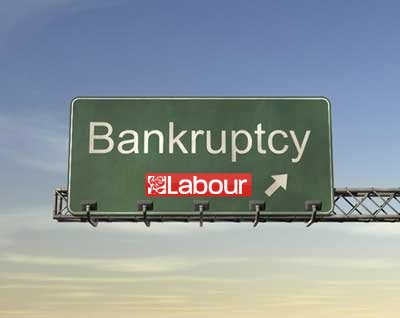Matthew d'Ancona, for several years now the rectum inspector-in-chief for the Political Classes, writes
For anyone who values freedom and accountability of course, the idea is utterly appalling. Quite obviously parties funded by the state cannot fail to become agents of the state over time, leading to the Political Class conspiracy against the voting public becoming even more deeply embedded than it is now.
However, although the idea of state funding may appear at first glance to be a significant threat to UKIP, in many ways in it an encouraging development.
Firstly, that the idea is even being considered shows that the almost total detachment of the Metropolitan elite and their LibLabCon political wing from the general public remains intact. State funding will rightly be seen by voters as a blatant money grab and protection of vested interest by a corrupt cartel. It would be especially humiliating for David Cameron's Tories, running completely counter to Cameron's flagship 'Big Society' project, replacing voluntarism with state coercion of resources. To even suggest such a development after the expenses scandal and at a time of austerity shows an almost total unworldliness.
But the very reasoning behind d'Ancona's article also shows a Political Class in complete denial: its entire thrust is that state funding is necessary because of the big donor funding scandals that have blighted political parties in the last few years. In true Metropolitan bubble fashion, he completely fails to explain or explore why sources of funding have dried up from individual donors, namely that the LibLabCon parties no longer listen to the people they purport to represent.
In this context, it is also very significant that d'Ancona's article doesn't mention UKIP at all, even though it is fair to say that the issue of funding has also caused UKIP some embarrassment in the past. To him and his kind, politics is an elite parlour game of musical chairs between the established Big Three parties. That a collapse of funding of one or more of them may lead to new players arriving on the scene and a much needed shake up of the system is completely unthinkable.
UKIP should of course refuse to participate in any state funding arrangements for reasons both of principle and low politics. Seen as a party which stands outside of the Metropolitan Elite, we are in a very strong position to capitalise on public revulsion to this measure. Secondly, state funding should prove the absolute final straw for many Tory MPs and the rapidly dwindling number of decent Tory activists, leading to a further collapse in Tory Party membership and potentially new recruits for UKIP. Indeed, one could go further and say that state funding should be a watershed moment for UKIP's attitude to defectors generally: anyone whom remained or became a member of the LibLabCon parties after state funding is introduced plainly has political principles wholly incompatible with UKIP's, and should be banned from joining our party in a similar way that we ban members of other organisations. As we grow, defecting to UKIP will be increasingly an act of opportunism rather than principle, and we must at all costs avoid becoming infected by the moral corruption and cynicism which has so blighted our established politics for so long.
In the wider scheme of things, the introduction of state funding could also prove a watershed moment in our democracy; with the cartel operated by the political class against the people brought into a very hard focus. if we play our cards right, it will also finally crystallise the perception of UKIP as a pro common sense, pro-people, anti-Metropolitan party rather than a just an anti-European one - a transition which has, of course, been underway for some time.
If state funding goes ahead, it may well be moment that the mould is truly broken.



 wonkotsane is an author at Bloggers4UKIP.
wonkotsane is an author at Bloggers4UKIP.
 Andrew Cadman is UKIP member and self-confessed "middle-aged geek".
Andrew Cadman is UKIP member and self-confessed "middle-aged geek".














